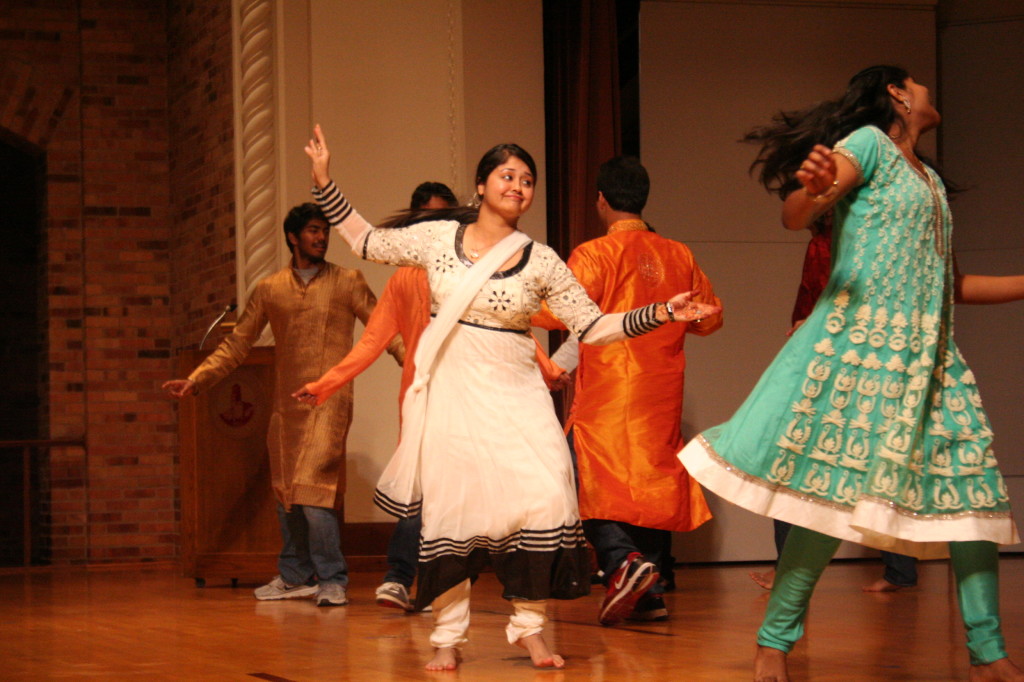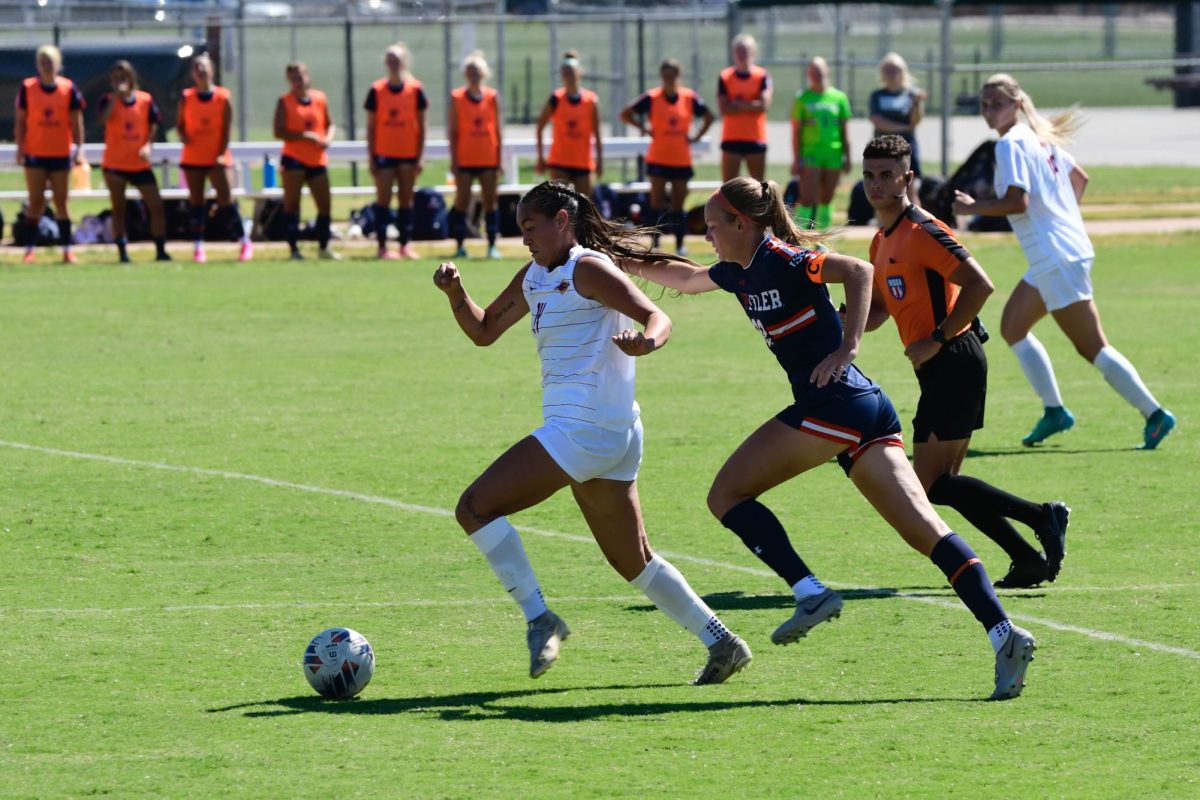
Dipika Nayuk, graduate in exercise physiology, dances to contemporary Indian pop music to show students the culture and customs of Indian students at Diwali in Akin Auditorium on Friday, Nov. 15. “We want you to take back home the different colors, the different kind of foods and basically our culture,” Nayuk said.
The Midwestern Indian Students Association held their annual celebration of Diwali, or the festival of lights, in Akin Auditorium on Nov. 15 in front of an audience of nearly 100 students, faculty and community members.
“It’s celebrated on a massive scale back home,” Dipika Nayuk, graduate in exercise physiology and president of MISA, said. “It’s like a new year to us. We light firecrackers, we invite people over to our homes for lunch and dinner, we distribute sweets.”
Nayuk said Diwali is a celebration of the return of the deity Shri Rama and the victory of good over evil.
“We are welcoming him back into the kingdom,” Nayuk said. “It’s important to us because it gives us a way to depict our culture, our traditions, through our performances.”
The cultural presentation began with the U.S. national anthem followed by the Indian national anthem, after which Michael Shipley, associate professor of biology and faculty sponsor of MISA, gave a short welcome before leading the traditional lighting of the diya, an oil lamp used in the celebration of Diwali.
“This is the biggest event for MISA in the entire year,” Shipley said. “This is only the second year that it’s been in Akin. Previously it’s been on a smaller scale in the Comanche suites, so it’s been building every year.”
Shipley said he became the faculty sponsor of MISA because he became interested in Indian culture after he visited the country twice.
“I had a wonderful time and enjoyed the culture and the food,” Shipley said. “The second time was even more special because I went back and I stayed in families’ homes. The first time it was hotels.”
Shipley said having visited India also helps him make the students feel more welcome when they arrive at MSU.
“You are a stranger in their land, if you will, and then when students come here it’s the same thing. And you understand a little bit more about their needs and you know how to help them a little bit better,” Shipley said. “I do my best to make Indian students feel welcome when they come here.”
After the lighting of the diya, Hrishi Pathak, graduate in exercise physiology, sang a prayer.
“In India we say that if you say a prayer before anything, it will go more smoothly,” Pathak said.
The prayer was loud and boisterous, letting the audience know that while Diwali is certainly a serious holiday, there is nothing dull or low-key about it.
Sanan Aamir, sophomore in computer science, and Apphia John, graduate in exercise physiology, hosted the event by introducing each of the dances and songs.
“We wanted to show people that we have fun,” Aamir said. “A lot of people think that when Indians come over here they’re just studying, just all college and no fun.”
Aamir said MISA’s Diwali celebration is important to him and other Indian students because the trip back home is so long and expensive.
“Not all of us get to go back home every summer, so you know, these things are very close to us,” Aamir said. “This is like a little family at MSU. It means that I have a home away from home.”
Once the cultural presentation reached its end, members of MISA began inviting the audience up to the stage to join in a dance. Students and even teachers including Shipley and Magaly Rincon-Zachary, professor of biology, joined the dance which traditionally would last for an hour. Fortunately for those participating, it didn’t last any longer than 10 minutes.
Kareem Small, graduate in biology, said his background in music made it interesting to discern the cadences of the music when he joined the dancers on stage.
“One of the things I realized is that what they present to us has some western influence because I noticed that all of the time signatures were in common time,” Small said. “In India they have a lot of different time signatures so I realized there’s an interplay between the western culture and the Indian culture.”
That interplay of cultures extended beyond the music and into the very philosophy of the MISA members’ reason for hosting the event each year.
Jaydeep Kolape, graduate in biology, said past Diwali events often had some students feeling left out because they weren’t able to fully express the importance of their culture.
“This time we thought, let’s just enjoy and if we really enjoy our culture, then definitely people will enjoy too.”












